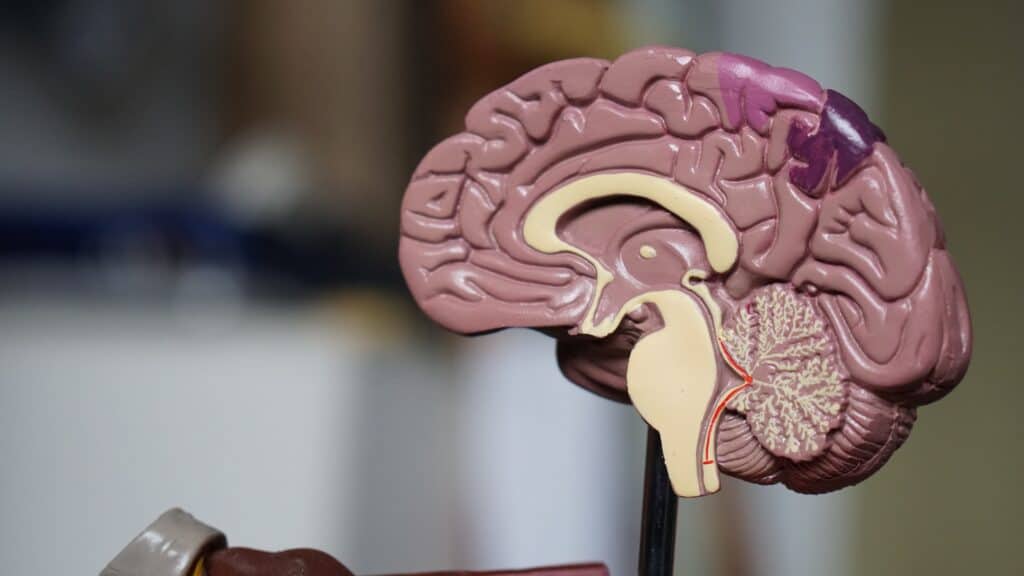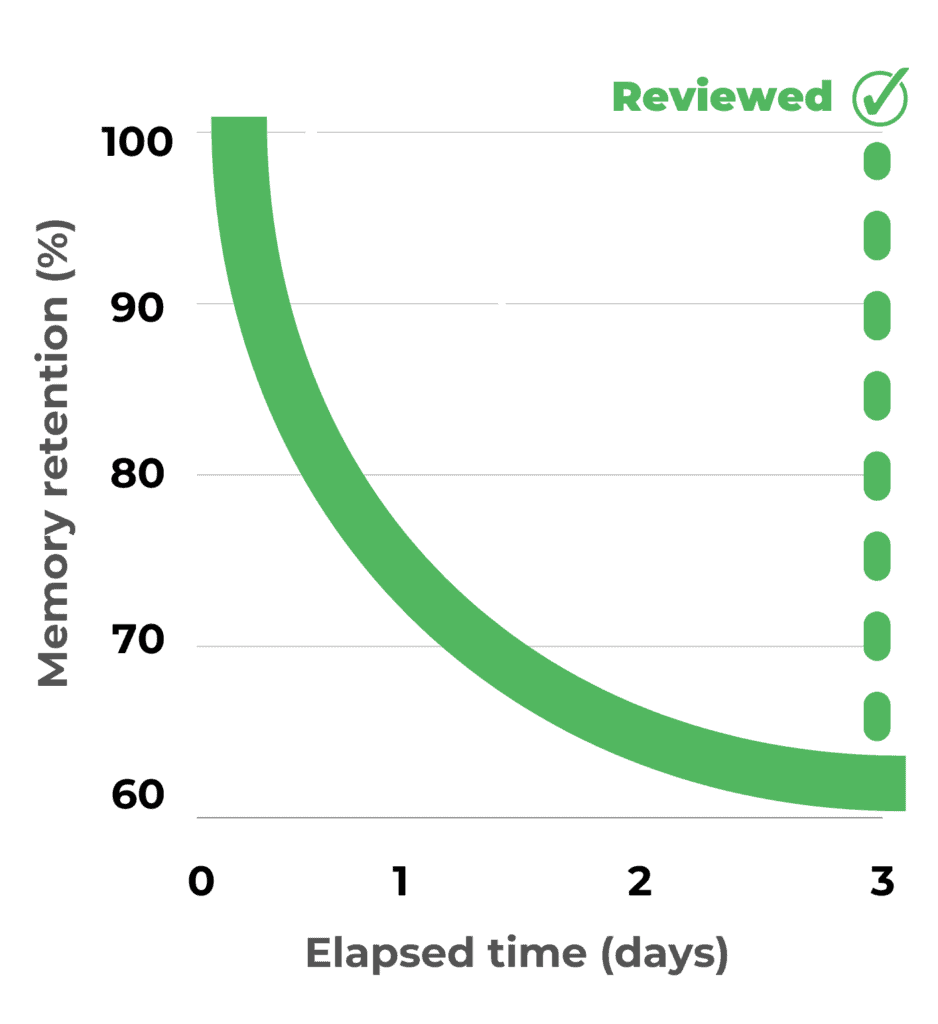Your end of year VCE Psychology exam is the ultimate test of how well you’ve understood the various concepts you’ve been taught in the year.
The end of year exam culminates what you’ve learnt throughout your VCE Psychology journey, from the process of how we think, to how we see the world and challenges to what we know about the world.
Sounds tough? Not to worry, in this article, we’ll go through our top tips to maximise your performance for the end of year exam!
Let’s dive in!
End of Year VCE Psychology Exam Structure
How to Study Throughout the Year
A Month Before Your End of Year VCE Psychology Exam
What to Do During the End of Year VCE Psychology Exam
How to Ace Different Exam Questions
End of Year VCE Psychology Exam Structure
Understanding the structure of the end of year VCE Psychology exam will help you with how to prepare for this exam.
You will only need to complete one written exam, which is a combination of multiple choice and short answer questions. The overall details of the exam are outlined below:
| Section | Time/Marks |
|---|---|
| Reading Time | 15 minutes |
| Writing Time (Total) | 150 minutes |
| Multiple Choice Questions | 50 marks |
| Short Answer Questions | 70 marks |
| Extended Reponse Question | 10 marks |
Having a strong understanding of the content will ensure you can answer questions efficiently and accurately, allowing you time to give the best possible answers to questions.
The 10 mark question is always tough: it typically involves an extensive scenario requiring you to integrate knowledge from across different areas of study, and consolidate your thoughts in a mini-essay.
Note: The 10-marker is always answered poorly relative to the rest of the exam.
But, don’t fret! We’ll help you find the edge to maximise your score not just for this question, as well as the rest of the end of year VCE Psychology exam!
How to Study Throughout the Year
During the year coming up to the end of year VCE Psychology exam, your main priority will be to understand concepts and be able to apply the information to any relevant contexts.
However, this shouldn’t just be a case of attend class and calling it a day! Here are some specific tips that will help maximise what you get out of classwork throughout the year:
Focus on Deep Understanding
Focus on understanding concepts, not memorizing definitions. Having precise definitions for all the terms you’ll use is certainly useful.
However, having broad understandings of concepts will enable you to give better answers to a range of questions.
For example, instead of asking “what is ______,” think about “why is ______ important?”
Create a Glossary
Have a compilation of key terms, i.e. a glossary.
This might seem a bit counterintuitive based on what we just said. However, this will be a very useful summary for all the concepts that you will learn in total!
Use Active Recall, not Passive Recall
Make use of active revision strategies.
Examples include: creating mindmaps, teaching your peers, or creating illustrations to visualise content. These will help with consolidating knowledge more than just reading textbooks!
Use as Many Resources as Possible
Know what resources you have available.
For example, on top of your class material, make sure to refer to your textbook, the study design, and also asking your peers and teachers any questions you have.
Stay On Top of Class Content
Do not fall behind — clarify any uncertainties early. There is a lot of content in VCE Psychology, so falling behind will make it difficult to catch back up.
As a general rule, you come into Psychology class knowing most of the content and you should leave the classroom having asked all your questions to the teacher.
Link Concepts Together
Think about how different concepts link to eachother. This is a lower priority, however you will want to begin to formulate some ideas of what links exist across areas of study.
You might notice that some key terms (from your glossary!) appear over and over again, and this is a hint of what concepts you might want to pay special attention to
One example of this is thinking about what types of experiments you might perform to test anything that you learn
Get a Revision Schedule
Revise content regularly, not just before SACs.
Regular revision will help you remember content more easily, which is important for a subject that has so much information you’ll need to retain!
The below diagram shows what this looks like.
A Month Before Your End of Year VCE Psychology Exam
Hopefully throughout the year, you’ve understood the content well enough.
Your goal coming up to the exam period will be to finesse what you know and practice how to best answer questions! Here are our top suggestions for what to do in the lead-up to the end of year VCE Psychology exam
Unsure how to study for the VCE Psychology Exam over the holidays? Here is our complete guide on balancing rest and VCE study over the break!
Tip #1: Use Practice Exams
Do practice exams, but maximise what you get out of them. Seeing how what you get correct and incorrect is definitely helpful, but thinking about why you missed marks will help you identify ways to make sure you get those marks in the future!
Spend some time preparing specifically for the 10 mark question. To answer this question well, not only do you need a sound understanding of the content, but you also need to consolidate the information into a coherent and cohesive response.
Check out our complete list of all past VCE papers and exams here!
Strategies you might use to prepare for this might include constructing mindmaps to notice connections between areas of study, or compiling key words to include in your response.
Tip #2: Develop an Plan of Attack for the End of Year VCE Psychology Exam
Will you start with multiple choice or short answer? What will you do in reading time? How will you handle a question you don’t know how to answer?
Make sure you have a plan going into the exam, as this will help you settle into a good rhythm during the exam.
Tip #3: Have a Consistent Sleeping and Eating Habits
Develop a consistent sleep and eating time. On the day of your end of year VCE Psychology Exam, stick your regular alarm and breakfast — you’ll be able to trick your body into thinking that it’s just a regular day!
For example, if you’re not a coffee drinker, don’t randomly start drinking coffee here and there. Your body wants to be as stable as possible.
Even better, treat every day as if it was an exam day: when would you sleep and eat?
Check out the 5 best sleeping apps to catch the best zzz’s here!
Tip #4: Pace yourself
For example, don’t try to do too many things in one day, as this is a way to shortcut yourself to burnout: this will hurt in the long run and counter all your hard work in the end of year VCE Psychology Exam.
What to Do During the End of Year VCE Psychology Exam
Having optimised your preparation prior to the end of year VCE Psychology Exam exam, what should you be doing during the exam? Here are our suggestions for what to be conscious of during your exam!
Here are the three most important things to ace your End of Year VCE Psychology Exam :
#1: Read questions carefully!
Words such as “psychological” and “physiological” look very similar to each other, but mean completely different things. It might help to point to each word as you read them, and make sure that each word is exactly what you think it is
#2: Know when to skip a question
It is likely you will encounter questions that you simply don’t know the answer to. In general, you should try to skip these fairly quickly, as being decisive will give you time to come back to the question later
#3: Attempt every question
For multiple choice, you have a decent chance of getting an answer correct even if you know absolutely nothing. For short answer, give a good go at describing a relevant concept, and you might gain partial marks.
How to Ace Different Exam Questions
Multiple-Choice Questions
- Eliminate incorrect options. For each question, there is one correct answer and three incorrect answers. If you can even remove one obviously incorrect answer, your chances of randomly guessing a correct option goes up from 25% to 33% – a very appreciable difference!
- Justify why your answer is correct, and why the others are incorrect. Even if you see an answer that looks reasonable, you should always check that the other answers do not make sense. Doing this might cue you to reread the question to see if you understood it correctly
Short-Answer Questions
- Pay attention to command terms. Writing an explanation for a “define” question is a massive waste of time, and likewise writing a definition for an “explain” question will not get good marks.
- Check your answers for precision. Do your explanations of concepts apply specifically to your concept, or is it a little ambiguous? Vague descriptions usually do not go well with examiners
Note: During your practice questions, always try to work on the precision of your answers.
Ten-Mark Questions
- Consider the significance of every sentence in the context. Usually, every sentence is included for a reason. If given a two paragraph context, there is a lot of information you could extract out of that!
- Cohesion is important, but not as important as the psychological discussion. Try not to spend too much time picking the exact right word for the sentence – a word that is good enough (provided it still conveys the correct meaning!) is sufficient and will help you save time
Note: A cohesive response is still nicer to read though – perhaps this is a skill you could also practice!
That’s a wrap!
Want to boost your chances of acing your exams? Read our other articles on VCE Psychology:
- Everything You Need to Know from the VCE Psychology Study Design
- VCE Psychology Past Papers Master List
Have a go at our practice SACs for some light revision!
- VCE Psychology Unit 3 AOS 1 Practice SAC
- VCE Psychology Unit 3 AOS 2 Practice SAC
- VCE Psychology Unit 4 AOS 1 Practice SAC
Are you looking for some extra help with preparing for your End of Year VCE Psychology exam?
We have an incredible team of VCE tutors and mentors!
We can help you master the VCE Psychology Study Design and ace your upcoming VCE assessments with personalised lessons conducted one-on-one in your home or online!
We’ve supported over 8,000 students over the last 11 years, and on average our students score mark improvements of over 20%!
Don’t put yourself at a disadvantage in preparing for the Psychology exam! Get a tutor to help support your study! Check out our VCE tutors in Box Hill!
To find out more and get started with an inspirational VCE tutor and mentor, get in touch today or give us a ring on 1300 267 888!
Kevin Chen recently completed his Bachelor of Biomedicine at the University of Melbourne. He is now undertaking an Honours year, where he is investigating the rise of hospital superbugs. Kevin lives by the motto “smiles go for miles!”







